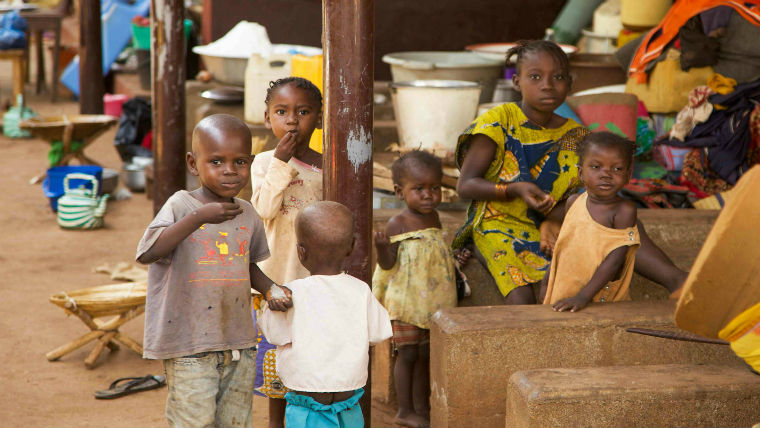New Report: The Plight of Central African Republic's Children
Children are paying the price of violent conflict in Central African Republic that is denying them their most basic rights to food, education, health and security.
That is the finding of a new report, "The Plight of Central African Republic's Children", released by World Vision today.
- 2.5 million people are affected by months of violence in the country according to the UN, most of whom are children
- In one region alone, World Vision estimates 14,000 children suffer from malnutrition and 40% of children have dropped out of school
- World Vision calls for peace, increased funding and protection for children

“We’re witnessing a heartbreaking situation for children in Central African Republic. When food runs out, adults go hungry, but children can die,” says Edwin Asante, response manager for World Vision in Central African Republic. “Food prices have tripled in some areas which will lead to more children suffering and dying from malnutrition or related diseases.”
This crisis is affecting the future of children – World Vision estimates that four out of ten are not able to attend school in some areas of Ombella M’Poko, as a result of the violence. “Many schools were destroyed, but this research has revealed that children have attempted to return to school only to find classrooms littered with explosives left behind by armed occupiers,” explained Mr Asante. “Schools have also been used as places to dispose corpses after attacks.”
To make matters worse, children have been sucked into the spiral of violence. While some children have taken up arms to defend their villages, many others across the country have been recruited by armed groups to potentially serve as soldiers, cooks, porters, guards and even sex slaves.
“We’ve seen a rise in the number of female-headed households,” says Mr Asante. “Many fathers are dead or are actually fighting which makes children from those households even more vulnerable to violence.”
World Vision has been responding to the crisis, feeding children in schools that are still operating, working to improve hygiene and water access, while also engaging in peace building discussions with various faith groups.
“While we work to respond to basic needs, we want to see the international community to increase pressure for an end to the violence, a sustainable and inclusive peace process, and to increase both immediate and long term funding, especially for the needs of children, concludes Mr Asante.”
For more information and interview requests, please call +447889 631613